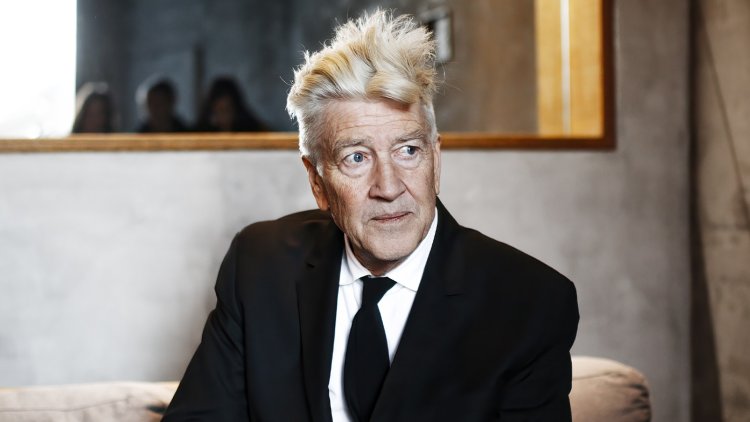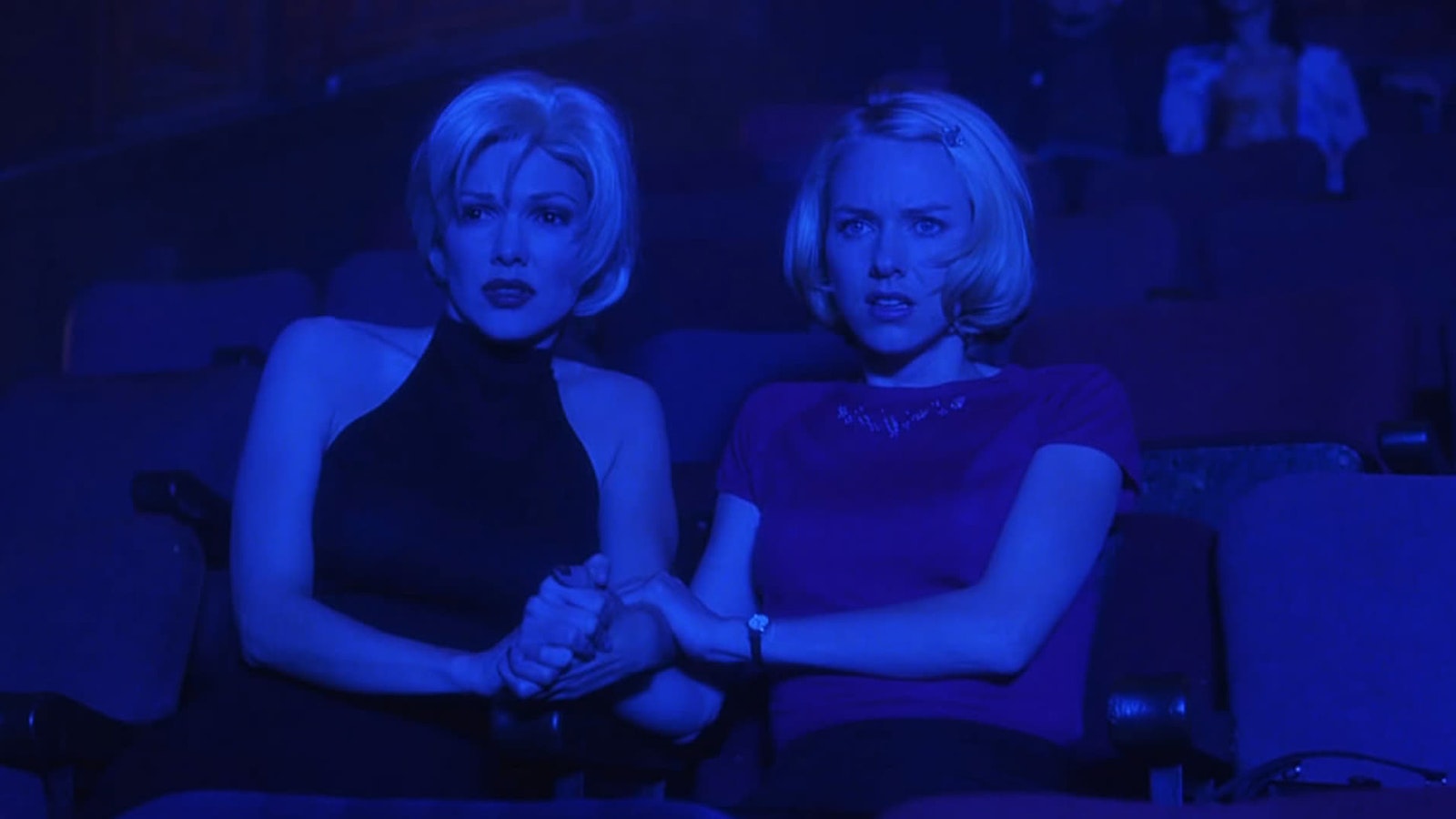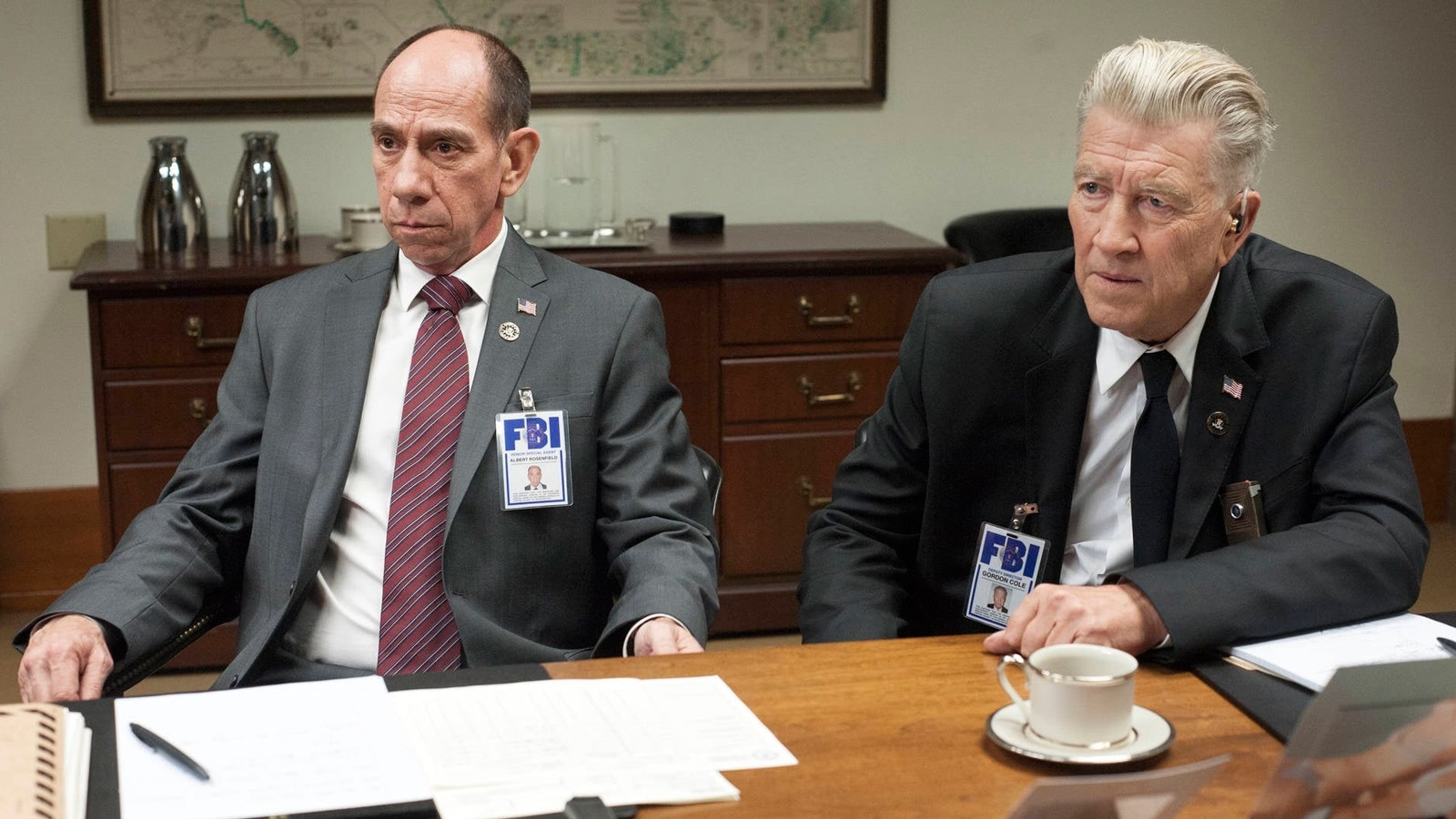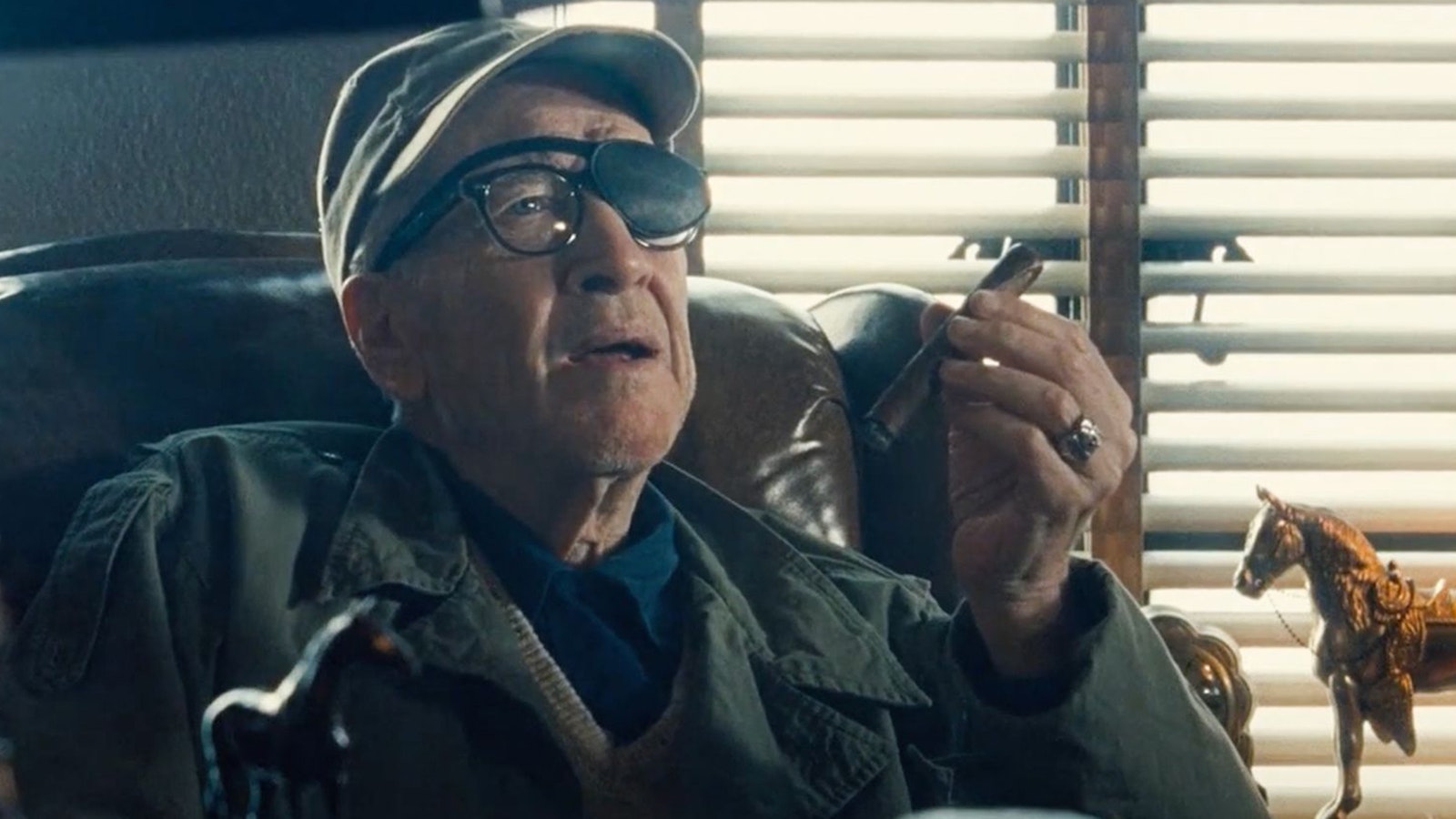David Lynch Conjured Cinematic Dreams – And We All Got To Live In Them
A few years back, I went to see my favourite David Lynch film, Mulholland...

A few years back, I went to see my favourite David Lynch film, Mulholland Drive, at the Prince Charles Cinema in London. The house was, pleasingly, pretty much packed. And as the movie started, I sank into Lynch’s nocturnal underworld of haunted starlets and malevolent hoods. Then, something odd happened. Half an hour into the film, a group of about ten people shuffled into the empty row in front of us. They sat, stock still, as the albino Cowboy issued his enigmatic threats (“You will see me one more time if you do good. You will see me two more times if you do bad”) to Justin Theroux’s Hollywood director. Then, seemingly without signalling or even looking at each other, they all shuffled back out again, mere minutes after they’d sat down.
Who were these people? Had the Cowboy chilled their blood? Had they come into the wrong screen, looking for Shrek? Or were they goblins, scuttling back to their dumpster round the back of the cinema? I’ll never know. But this moment has stuck with me because it felt perfectly Lynchian. For Lynch, answers were never the point. It was the questions that mattered. While other filmmakers tried to wrestle order out of chaos, compacting their stories into neat three-act structures, Lynch revelled in the tumult — that feeling that life is a beautiful, terrifying mystery.

His movies, his TV shows, even his PlayStation 2 adverts, are impossible to pin down, but they cut through the noise, yanking our emotions to the surface. His work is never dull or ordinary; not even that bit in Twin Peaks: The Return where a janitor sweeps the floor of a bar for three minutes straight. My first taste of Lynch came at age 13, with the Wizard Of Oz-riffing Wild At Heart, a sensory experience that jolted me like no film had before — I still find the scene where Nicolas Cage’s Sailor dashes a man’s brains out almost impossible to watch. “Really insane and sick and twisted stuff going on,” Lynch smiled of the on-screen shenanigans. But it’s hypnotic and weirdly life-affirming too, with a full-blooded passion between Sailor and Laura Dern’s Lula that makes True Romance look like child’s play.
That swing back and forth between violent chaos and otherworldly beauty continued to enthral me as I tunnelled into Twin Peaks, grappled with Lost Highway, and tried to get my head around the ten clues Lynch provided for the 2002 DVD release of Mulholland Drive (including “Notice appearance of the red lampshade”, and “Who gives a key, and why?”) I’ve since come to the conclusion that Lynch was trolling us with the latter. A fervent proponent of transcendental meditation, he famously saw ideas as “fish” that he hooked out of an ocean of consciousness; attempting to figure out how scenes and characters connect is like trying to find a pattern at Tsukiji Market.
He could reach areas nobody else could get to. We all lived his dreams.
But what fish he caught. You only have to hear the words “David Lynch” to summon pulsing, iconic images to your mind. For me, today, it’s the Lady In The Radiator crooning in Eraserhead, the mute chanteuse at Mulholland Drive’s Club Silencio, the humanoid rabbits in Inland Empire. More than any other filmmaker who has ever lived, Lynch seemed able to pull things out of the deepest, darkest recesses of his mind and put them, unfiltered, on screen. He could reach areas nobody else could get to. We all lived his dreams.
I’ll count myself forever lucky that I got to cross paths with him in real life. In 2007, he was in town for the London Film Festival and available for an interview about transcendental meditation. Lacking an official camera crew, members of Empire staff eagerly geared up with a camera and a boom mike, and we headed to a dimly lit room near the Plaza shopping centre off Oxford Street, where Lynch sat on an antlered throne, beaming benignly like an alien emperor. Adding to the surreal nature of the day, Scottish musician Donovan sat beside him, strumming a guitar as Lynch spoke. I asked questions from my position sitting on the floor. And it’s fair to say that I’ve never felt so enlightened. He was every bit as genial as his legend suggests, posing with us for a photo before heading outside to smoke two cigarettes.

His output slowed as time went on, and he seemed to prefer to stay in his studio in LA, working on art and issuing gloriously idiosyncratic weather reports while sipping cups of no-doubt damn fine coffee. In 2014, though, he gave Empire a contribution to our ‘Director’s Cut’ issue: a doomy lithograph called ‘Pete No Start Fucking Car’, with the explanation that “The situation to Pete to me is not really about cars, but about the fact that in all areas of life nothing is ever perfect.” And in 2017, seemingly out of nowhere, the world received one more gift from Lynch: 18 new episodes of Twin Peaks, an extended blast of pure, uncut, wonderful madness that instantly became one of my favourite things he ever did. All of it was there… hilarious vignettes (if you haven’t experienced Michael Cera’s Wally Brando, you haven’t lived), incredible music (right to the end of his life, Lynch playlisted like no other), moments of abject terror (the iconic Episode 8) and mystical beauty (who would have thought that a kettle could be the perfect tribute to David Bowie?).

And then, finally, there was The Fabelmans. 2022 brought us falling moons, soaring jets and collapsing multiverses at the movies, but the oddest, most moving spectacle proved to be legendary director David Lynch, playing legendary director John Ford, concluding legendary director Steven Spielberg’s film with these words: “If the horizon’s at the bottom, it’s interesting. If the horizon’s at the top, it’s interesting. If the horizon’s in the middle, it’s boring as shit.” Farewell to a filmmaker who was anything but.
What's Your Reaction?























